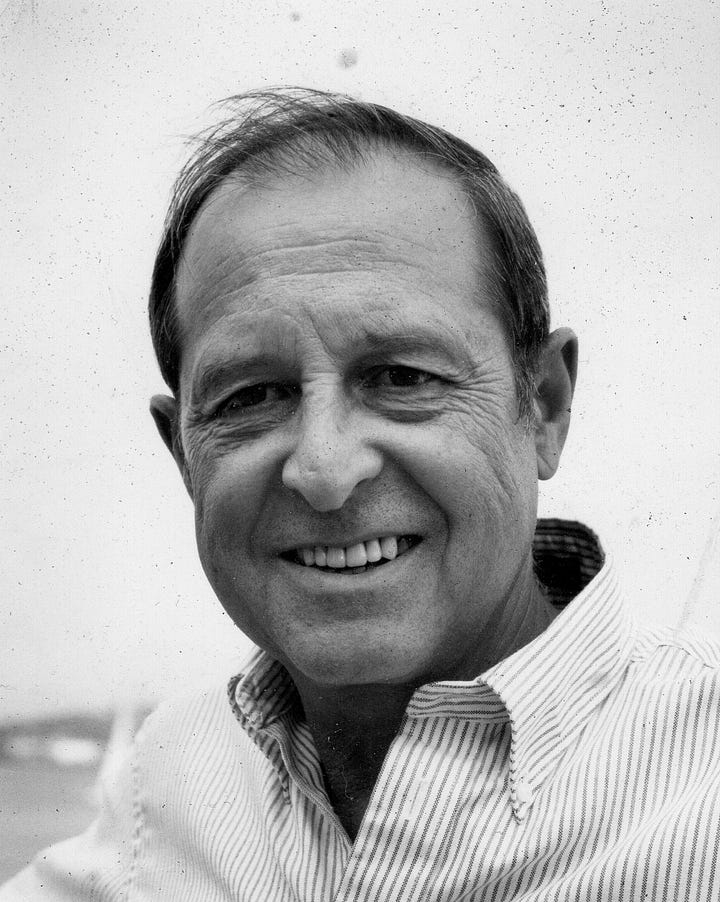

Hello everyone:
I’ll pick up where I left off last week, drawing connections between and lessons from the great writer Barry Lopez and a great scientist, my father, Vaughn Anthony. If you’re new to the Field Guide, I recommend you read last week’s writing first.
I forgot to acknowledge last week that I included versions of some of these paragraphs in my two-part essay on bottom trawling, “Scraping Bottom” and “Good Management and Difficult Decisions” back in June. I apologize for the repetition, but I hope some of it is worth hearing more than once…
Please remember to scroll past the end of the essay to read some new curated Anthropocene news.
Now on to this week’s writing:
Dad’s career was built around the idea that we are obliged to manage the species we impact. We have to carefully observe and regulate our taking of resources. As I grew up I came to realize that the scale of human impacts are now so staggering that we’re trapped in a reality that requires us - whether we like it or not, and whether we’re ready or not - to “manage” the entire planet.
Ironically, it’s not a role we’re well suited for, even though this current civilizational experiment assumes that we’re in charge. Or as Daniel Quinn described it in Ishmael, we’ve assumed, delusionally, that we among all species have the right to “decide who lives and who dies on this planet.”
I like to think that we embrace the scientific management of species and ecosystems because we’re widening the circle of empathy beyond mere human concerns. When we manage with care, we’re taking responsibility. If the embrace is cultural rather than strictly scientific - like volunteer groups protecting habitat for migratory birds - it’s clear that good management is a deepening of our relationship with life. When we take responsibility, we necessitate respect. Respect, because the established value is, for example, a healthy population of cod or flounder, which means far more to the fabric of life than the math of harvesting a resource.
We need to define what management means and what responsibility looks like in each and every case, and adjust it to the incredibly dynamic changes in natural systems and human behavior, but we also need to be honest about what’s really happening. It’s not the cod and haddock (or grizzlies or monarchs or grasslands) that need to be managed. It’s us. We say we’re managing species, but really we’re managing our impact.
Managing resources is, in the end, about learning restraint. It’s about reducing our harms. Protecting ecosystems is about protecting them from us. Lopez addressed this throughout his life, but I’m especially fond of how he articulated it in Arctic Dreams:
Because mankind can circumvent evolutionary law, it is incumbent upon him, say evolutionary biologists, to develop another law to abide by if he wishes to survive, to not outstrip his food base. He must learn restraint. He must derive some other, wiser way of behaving toward the land. He must be more attentive to the biological imperatives of the system of sun-driven protoplasm upon which he, too, is still dependent… Having taken on his own destiny, he must now think with critical intelligence about where to defer.
That last sentence - “Having taken on his own destiny, he must now think with critical intelligence about where to defer” - is a masterpiece of insight and gentle prodding. Given that our “destiny” is a loose cannon threatening to sink the ship we all live on, he’s saying, maybe we should rein it in?
I should probably explain that Dad never thought of himself as an environmentalist. In fact, he often half-joked about how activists got emotional about protecting baby fur seals but didn’t give a shit about the ugly codfish that were far more essential to North Atlantic food webs. But as a responsible hunter and fisherman he was always conscious of the deference due to the lives we took. Management might not be love, but it can be care. Even at the end of his life he still had a child’s awe of wildlife and wildness and a deep joy in being connected to them. He was never as happy as when he was thigh-deep in a river with a salmon tugging at a homemade fly.
I’d like to believe that Dad’s consciousness is fishing somewhere on a fast, clear river in the sky rather than fading into the ether while his body lies cold in the ground, but I can’t help but think that that’s the same kind of delusional thinking – a more delicate term is “optimism bias” – that makes nearly all of us believe that the Anthropocene will somehow turn out okay.
That’s very, very unlikely. Or impossible, really, since we’re already past the “okay” stage of keeping things the way they’ve been while humans stumbled out of Africa and into the air-conditioned supermarket. The increasingly hotter climate, acidifying oceans, and early symptoms of a mass extinction are signs of radical transformation, not stability. Even if we define “okay” as managing to keep at least some semblance of Earth’s current biodiversity and a climate stable enough to prevent millennia of chaos, we need an aggressive management strategy that includes both a widespread revolution and a deep revelation about how to properly live as an overpopulated, self-interested, destiny-focused species on a small planet.
Or as Lopez put it in his final book, Embrace Fearlessly the Burning World, edited by his wife Debra Gwartney and published posthumously in May 2022,
We must reckon with the sixth extinction, which will remove, for example, many of our pollinators, and one day, probably many of us. We must invent overnight, figuratively speaking, another kind of civilization, one more cognizant of limits, less greedy. More compassionate. Less bigoted. More inclusive. Less exploitative.
This call is echoed almost daily in the news items and scientific studies that highlight our Anthropocene transformation. But I often think back to one assessment that came out a few years ago, from several of the world’s top ecologists, entitled “Underestimating the Challenges of Avoiding a Ghastly Future.” Here’s a taste of the article’s introduction, minus its citations:
Humanity is causing a rapid loss of biodiversity and, with it, Earth's ability to support complex life. But the mainstream is having difficulty grasping the magnitude of this loss, despite the steady erosion of the fabric of human civilization. While suggested solutions abound, the current scale of their implementation does not match the relentless progression of biodiversity loss and other existential threats tied to the continuous expansion of the human enterprise… We summarize the state of the natural world in stark form here to help clarify the gravity of the human predicament. We also outline likely future trends… to demonstrate the near certainty that these problems will worsen over the coming decades, with negative impacts for centuries to come.
There are two things I want to note about what they describe as “the steady erosion of the fabric of human civilization.” First, that the fabric they’re referring to is not social and urban structures; it’s the web of life. As ecologists, they know that what seems separate from us is not. Second, that the language of a scientific paper should be this dramatic speaks to both the immediacy of the problems they describe and the authors’ belief that scientists should now be speaking much more boldly. Why? Because too few of us know what scientists have documented behind the curtain of our daily lives, and the consequences of our ignorance are, to borrow an adjective, ghastly.
A brief cluster of examples: We’ve altered more than 70% of the planet’s terrestrial surface, cut in half the global biomass of vegetation, and decimated the populations of wild terrestrial mammals so intensively that humans and our livestock now make up 96% of mammalian biomass on the continents. To be clear, that means that only 4% of land mammals are wild.
Much of this has occurred in the last hundred or so years, an evolutionary eyeblink. No surprise, then, that much of the scientific discussion about the fate of the Earth is focused on this century. As the “Ghastly” report describes, the worst impacts are accelerating and the best solutions are scarcely being implemented.
You don’t have to go anywhere to see the Anthropocene in action. Observations can be made wherever you stand on Earth. A field guide to the Anthropocene is a field guide to the planet. It reminds me of a joke by the comedian Stephen Wright about a map of the world he had at home. “It’s actual size,” he deadpanned. “The legend says one mile equals one mile.”
Wright’s joke has a history, being a riff on a one-paragraph story, “On Exactitude in Science,” by Jorge Luis Borges, which in turn was a riff on an idea in Sylvie and Bruno Concluded by Lewis Carroll. In each case, the joke satirizes our impulse to create simulations of reality rather than simply inhabiting it. You can read more about this on the internet…
The ecologist and writer Carl Safina wrote in a Yale360 article about the “Ghastly” report that the results of the Earth’s rapid transformation “are stark to anyone who has known and loved a place over several decades.” And this brings me to my final question for the day, one I’m sure I’ll return to many times: What does it mean to love a place, or the Earth as a whole, in the Anthropocene?
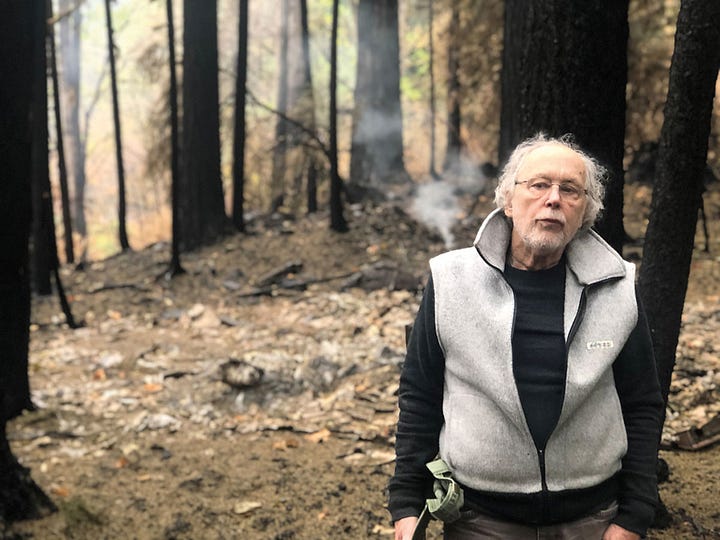
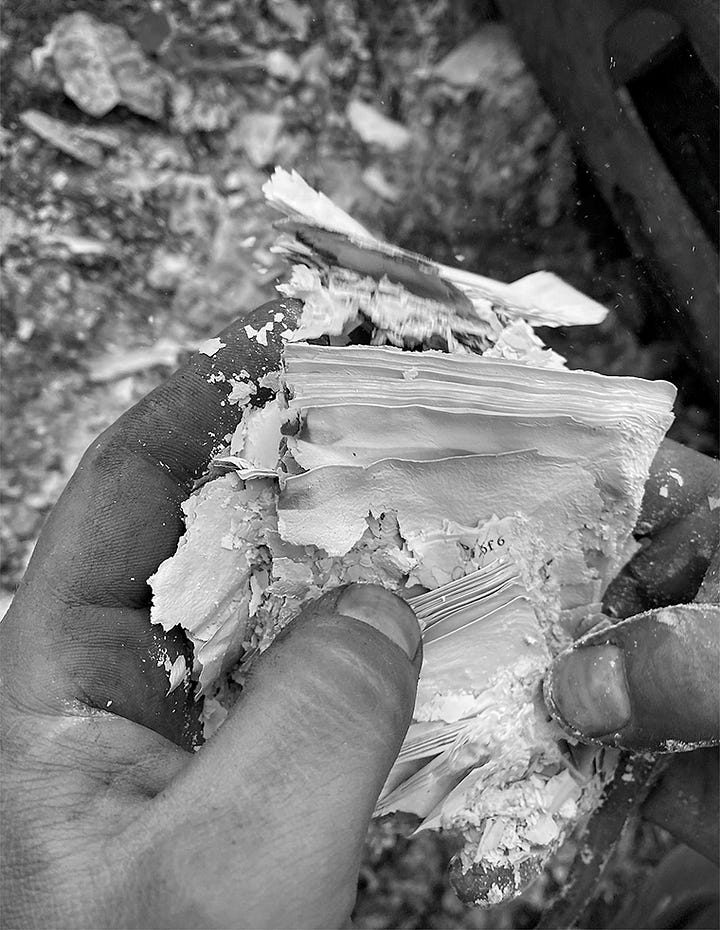
It means, I’m afraid, that many of us will suffer as Barry Lopez did in his final months. In September of 2020, a fast-moving fire sent him and his wife fleeing as it raged through the old-growth forest around his Oregon home – a forest he purchased to protect some fifty years earlier – charring his house and destroying part of his literary archive.
There is a stark Anthropocene narrative behind the fire: Transmission lines bisecting the landscape surged with the power of combusted fossil fuels and dammed rivers until they sparked the tinder of a normally rain-soaked forest that had been parched by a long hard unnatural drought. After the fire, as his family mourned him, logging companies fast-tracked by a Trump administration rule on post-fire salvage logging ripped out much of the region’s trees and pestered his wife with eight to ten calls a day to make offers.
That Barry Lopez should spend his final months as a climate refugee suggests a tragic irony. The forest he spent a lifetime revering and protecting? Burned. The evidence of his good work? Much of it turned to ash.
Some of his literary materials had previously been moved to an archive in Texas, thankfully, and the best of his work, I assume, is lodged in his books. And so maybe the fire is less a story of irony than one of symbolism. Lopez spent decades traveling for truth, writing to record his truths, and teaching numerous writers, readers, and students to help them continue the work. The fire, then, is less an ironic surprise than another sacrifice in Barry Lopez’s life to remind us of what to value and how quickly it can disappear. In the Anthropocene, much of what we love will burn up or become some human wasteland or settle under rising seas or otherwise irrevocably change.
It’s been happening for a while. It’s happening right now, especially to people who are least responsible for it. The change is everywhere, as the climate adjusts to Pliocene-era CO2 levels and life tries to thrive in fragments of habitat.
Perhaps we will not all suffer in the Anthropocene with the same tragic irony or symbolism as Lopez, but odds are many of us (or our kids and their kids) will. Maybe that industry your community welcomed into town in order to sustain its families increased the number of cancers in your family? Maybe the family farm no longer hosts a family or a farm? Perhaps your city’s water supply poisons as well as sustains? Surely the plastics we consider a convenience will end up as a thousand-year nightmare, and your children’s totem animals will be threatened with extinction by the time the kids are your age. Maybe yours already are?
My father’s career had plenty of management successes, but from start to finish he watched as the short-term thinking of politicians (who never worried about the scientist vote) and harvesters often compromised the science to maximize the catch. At home, he spent his final two years fighting alongside us in a losing battle against an aggressive “green” nonprofit that turned twenty four acres of vernal pool habitat next to our house into parking lots.
The Anthropocene means that many things we fiercely love will be even more fiercely taken from us.
Which is why Barry Lopez taught us to sing a bit in order to help lighten the load. As he did, right to the end. His remarkable final words – “It’s a wonderful morning. How is everyone?” – addressed his loving family, yet seem somehow meant for the rest of us as well.
As I understand it, Lopez’s lifelong message was this: Revere all of life, and tell stories to share and to pass on that reverence. My father told stories of salmon and deer and woodcock, totems from within the living fabric he had loved from childhood. His life of fisheries management was a story too, one of math and aftermath, of work in service to other species. And I’m here to tell some stories as well, hoping to make the future a little less ghastly.
The more we tell these stories that embrace reverence, the more likely it is that some of us will act accordingly, and the more likely it is that some of what we love will survive.
Thanks for sticking with me.
In curated Anthropocene news:
If you read only one article here, read this: From the Guardian, a study of autopsied human organs - livers, kidneys, brains - found, unsurprisingly, a plethora of microplastics. What was surprising was how much is accumulating in our brains. On average, the amount of microplastics in brain tissue was 10 to 20 times greater than in the other organs. Nearly a quarter of the brain samples were made up of 0.5% plastic by weight. (Another preliminary finding notes that brains of dementia and Alzheimer patients contained 10 times the amount of plastics as healthy brains.) These findings are merely the latest to observe the deep infiltration of these toxic particles throughout the human body (lungs, placentas, reproductive organs, knee and elbow joints, blood vessels, bone marrow, and more) and across the entire planet, from the deepest seas to the polar regions and the stratosphere.
In related, somewhat hopeful news from Grist, the Biden administration is suddenly signaling that it will support progressive goals in the U.N. global plastics treaty: setting limits on plastics production, targeting especially hazardous plastics, and creating a global list of chemicals to be more carefully regulated. The final round of treaty discussions take place this November in South Korea, and the U.S.’s new position may tip the balance for the “high-ambition” nations seeking to finally begin reining in this incredibly toxic, irresponsible industry.
Some excellent news from Oregon Public Broadcasting: The Klamath River is now free-flowing again for the first time in more than a century, just in time for the fall salmon run. In the largest dam removal project in U.S. history, four dams on the Klamath are being removed and the river restored to a version of its ancient self. You can read a press release from the tribes and nonprofit groups who have been fighting for this day for decades. A leader of the Yurok Tribe noted that they are finally meeting their obligations as stewards of the land: “Our sacred duty to our children, our ancestors, and for ourselves, is to take care of the river, and today’s events represent a fulfillment of that obligation.”
Borrowing recent recommendations by Bill McKibben, here are two new Substacks that might interest you: One that explains how railroads can be a major solution to the clean energy and clean transportation revolutions - called Solutionary Rail - and another from the brilliant, fun, and thoughtful
, author of two books on the climate crisis, What If We Get It Right? (which comes out in a few weeks) and the anthology All We Can Save. Her Substack is also called What If We Get It Right?From
and The Climate According to Life, some good news on promoting the link between the biodiversity and climate crises. Susana Muhamad, the Environment Minister for Columbia, will be president of the COP 16 Biodiversity Conference in Columbia this fall, and she made a point recently of explicitly linking deforestation and the loss of nature more generally to the heating of the planet. It’s imperative that the daily conversation about climate change looks beyond emissions and acknowledges the role that deforestation plays. Rob posts a Guardian article which includes this paragraph:“There is a double movement humanity must make. The first one is to decarbonise and have a just energy transition,” Muhamad said. “The other side of the coin is to restore nature and allow nature to take again its power over planet Earth so that we can really stabilise the climate.
From the Times, the massive biodiverse wetland region of Brazil known as the Pantanal is burning, again, due to the transformation of the area by a hotter climate and deforestation. This is one of the few large-scale wild areas in the world still marked by incredible abundance and diversity, and much of it is going up in smoke.
From the Conversation, “The Overshoot Myth,” a long, comprehensive, and rational wake-up call for a civilization that somehow still believes we can keep burning fossil fuels and then make up for it later with fantastic unproven technologies. The three authors, all scientists, explain that we simply cannot blow past 2.0C (1.5C is already toast) while waiting delusionally for solutions without shocks to the natural and human worlds that may be catastrophic and irreversible.
From
at Volts, another great podcast, this one about EV charging in urban neighborhoods.


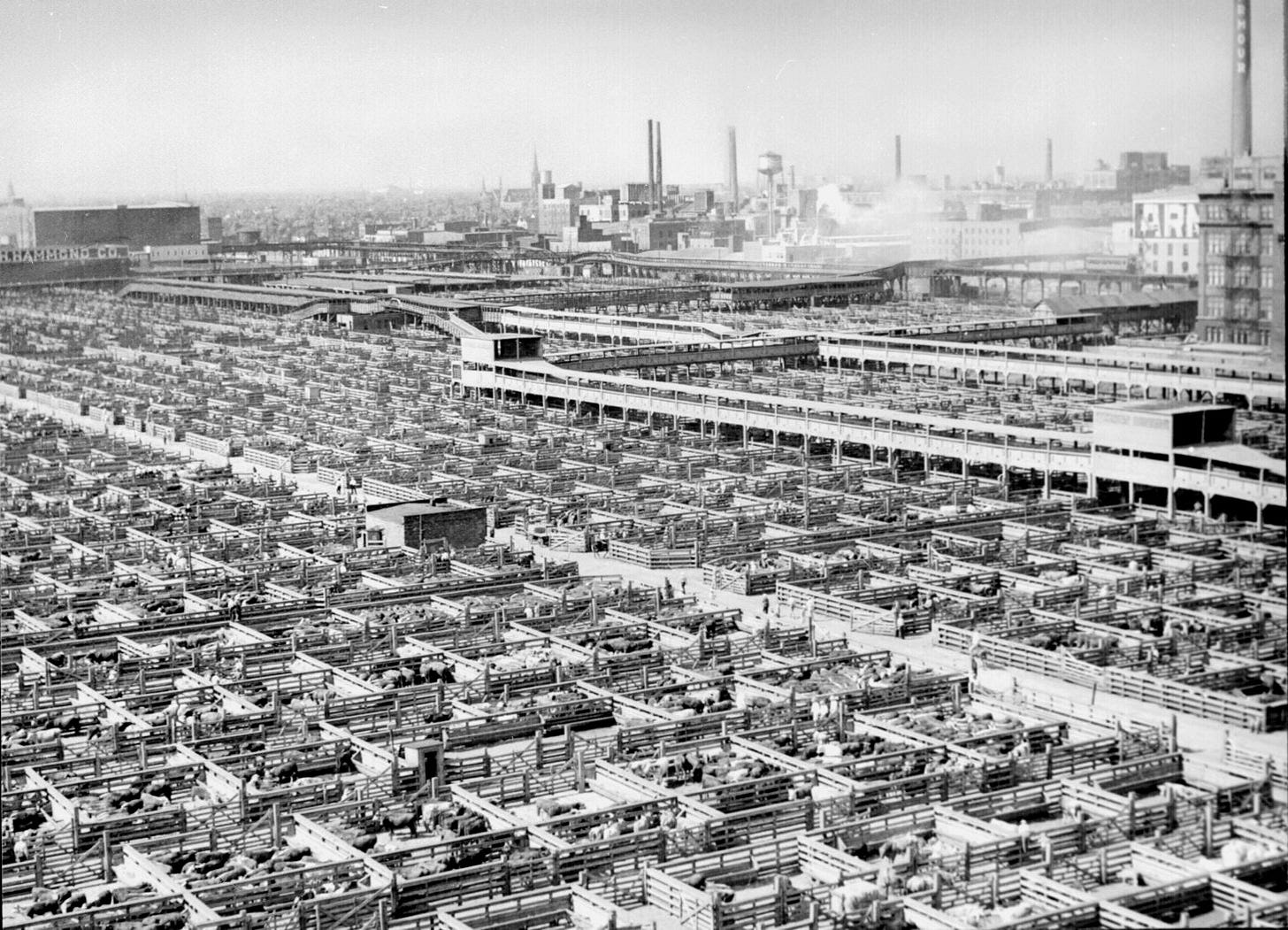
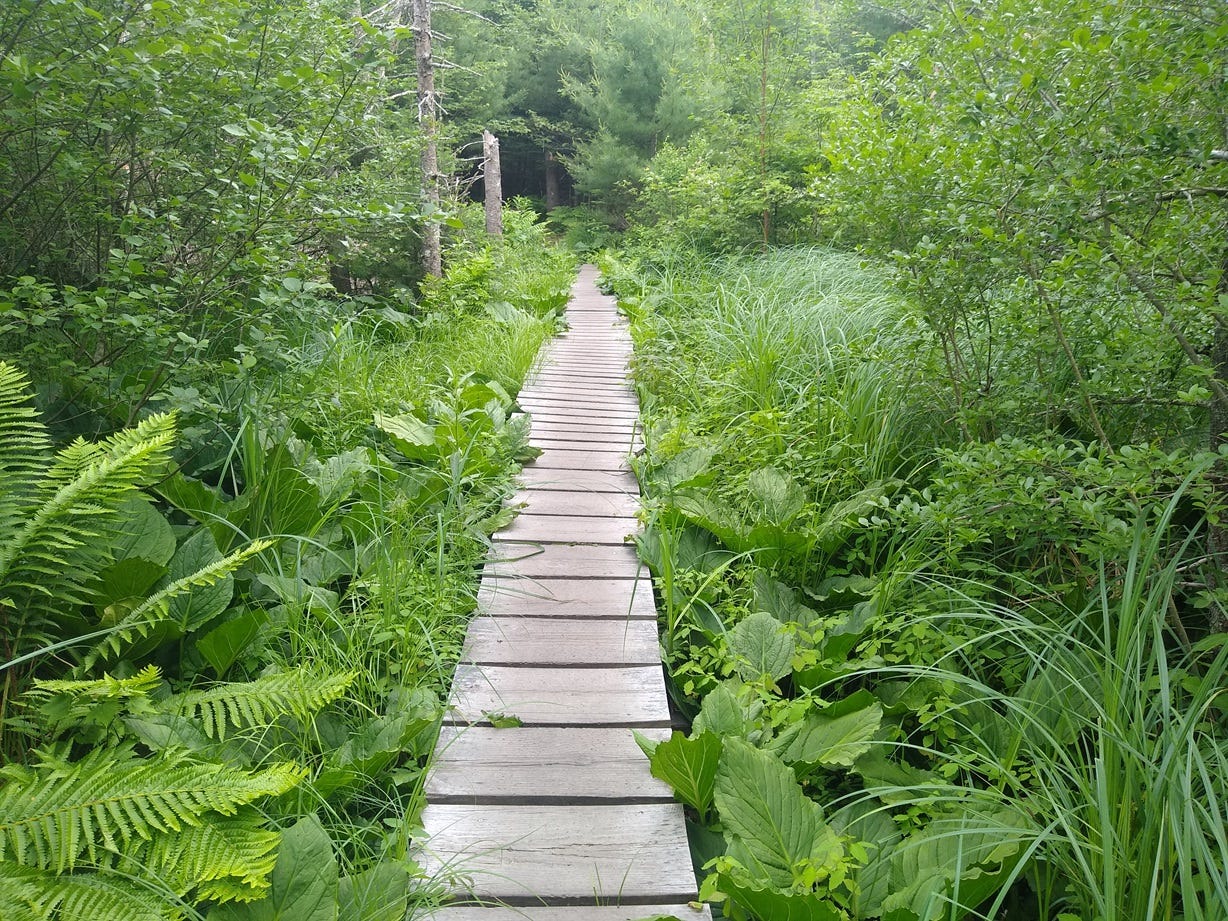

It would have been a gift to have met Barry AND your dad, Jason. Thanks as always for keeping me aware and prompting me to think. I wonder if your dad, a scientist with passion, ever felt or expressed the finer points of morality relating to our responsibility to manage what we impact? Maybe the answer is, of course -- it's all about morality. But I'm wondering if he might have discussed what that meant.
The anecdote about Lopez and the forest fire is particularly sobering. My piece this week was on the virtues of doing nothing, but environmental destruction means all doings around us eventually come for all of us.